Dispatch: In between the lessons. Staying together in uncertain times, laughing in the face of trouble, and disobeying; the future belongs to us
In her dispatch from the School of Common Knowledge curator Antonela Solenički recalls the stream of encounters, the exchanges in between lectures, the coffees and cigarette breaks in Zagreb and Ljubljana. Tired from endlessly using and misusing English, she asks ‘what words will we write the future with?’
It’s the end of May in Zagreb and the weather is tricky. I arrive fifteen minutes early at the museum; it’s the first day of ‘The School of Common Knowledge’ and there is an opening lecture. As I wait for the rest of the group to arrive I sit in the bar in front of the museum, order a coffee, and roll a cigarette. I light it and search for more information online. People start to arrive; friends, students, artists, lecturers. Hello-hello. Kiss-kiss. Don’t all the lectures usually start late? I light up another one as I talk to strangers who feel like people I already know.
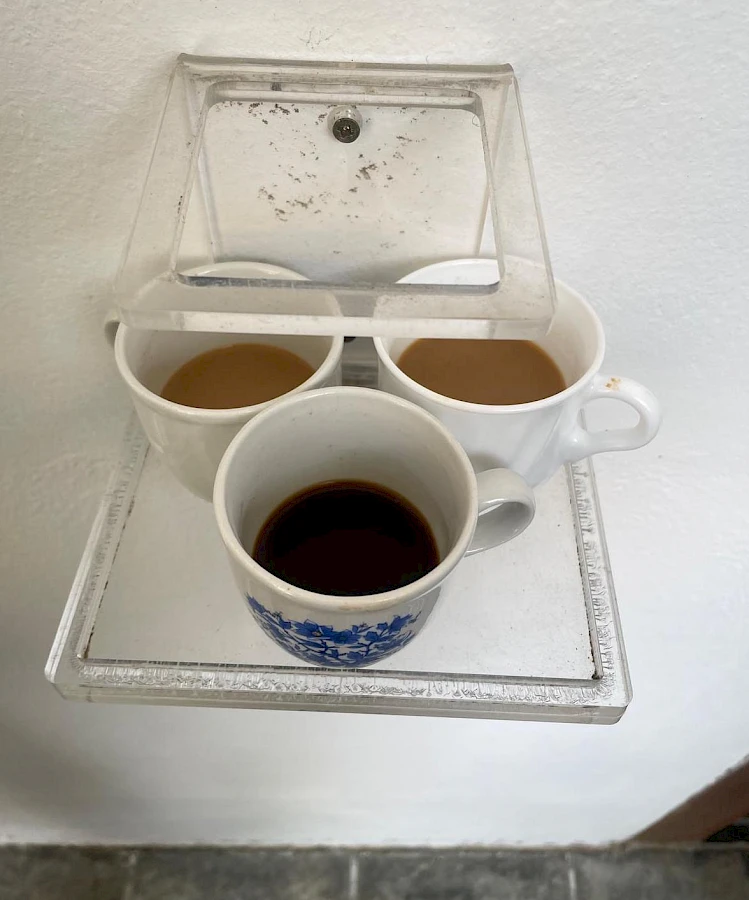
Photo: Antonela Solenički
Zagreb-Kostanjevica-Ljubljana. Six days of presentations-lunches-lectures-workshops-dinners. Keywords: comradeship-resistance-post-socialism. What is to be done with those words? We have learned that we must go beyond the words for words are worlds and they shift meanings between contexts. English here is simply not enough, one can even talk with their eyes and hands.
Will we have a break soon? I need coffee and a cigarette. Let’s sneak out of the class to smoke – like real students. Can you roll me a cigarette? I thought you didn’t smoke. I don’t.
What does comradeship even mean to you? Maybe it’s a form of resistance against the isolation of contemporary life. This concept starts to unfold and comes alive in between the lectures as we bond over shared meals, thunderstorms, heavy rain, and late-night conversations. Solidarity here is a daily practice, a glue that puts the shattered pieces together.
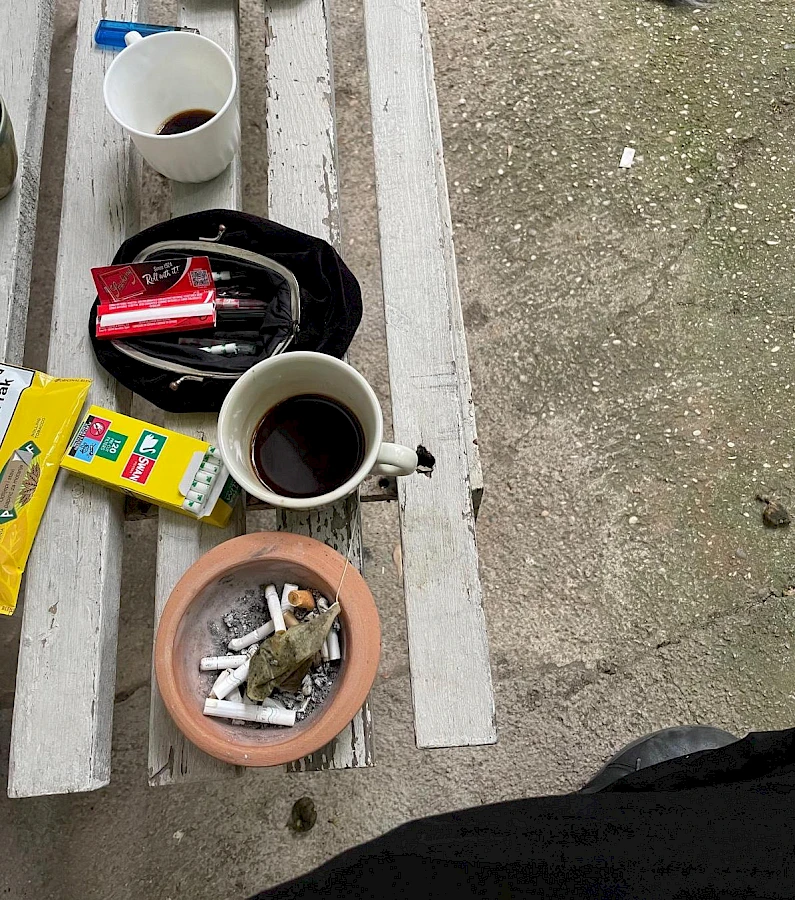
Photo: Antonela Solenički
Should we be taking notes? What did you think of the lecture?
It seems like history has failed to provide us with the answers. Or maybe we are just looking for them in the wrong places. How do we deal with the past, how do we deal with the present? Anyway, what Boris Buden writes in the preface of his book Transition to Nowhere comes to my mind, he says: ‘(...) the art approached me in order to get in touch with history’.1 I wish to believe in searching for answers in art, but this hope needs to be exercised. With whispers of history lingering in my ears, I wonder what kind of words we will write the future with.
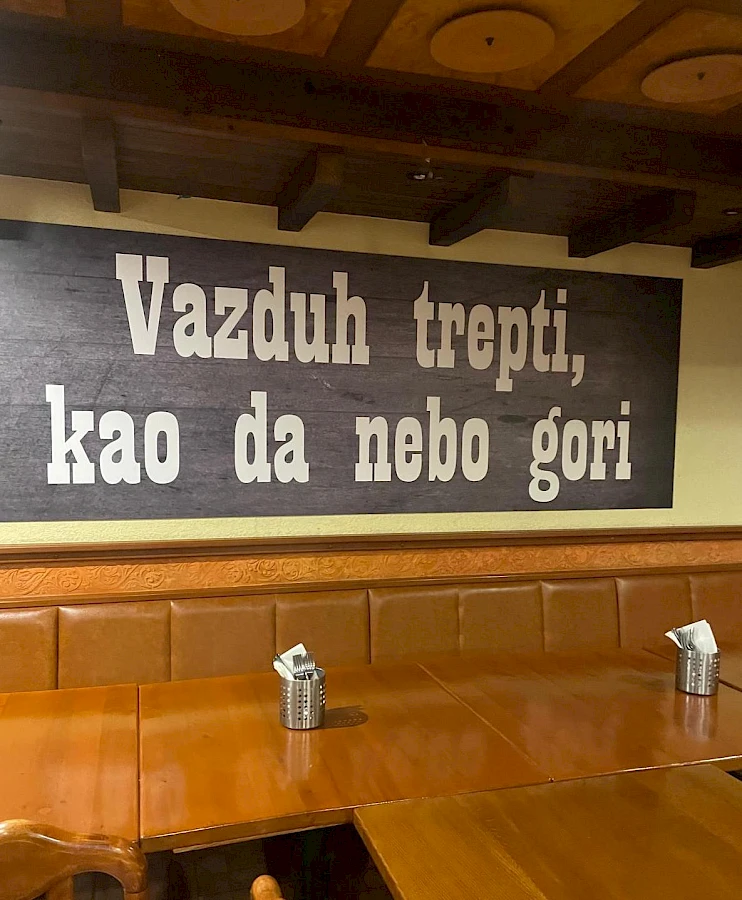
Photo: Antonela Solenički
It’s the end of May in Ljubljana and the weather is acting really silly. It’s the last day and now my jaw already hurts from talking in English. I’m gonna miss this pain soon, though. Is this the ‘on this side of the bridge’, bridge? No, I think it’s that one, let me see the video once again. It’s time to go home. Everyone is leaving; friends, students, artists, lecturers. Kiss-kiss. Let’s keep in touch. Bye-bye. How do you go back to normal life after summer school? Is this what you always do?
P.S.
Ljubljana is just a train ride from Zagreb.
Related activities
-
–MSU ZagrebVan AbbemuseumModerna galerijaZRC SAZU
Open Call – School of Common Knowledge 2024
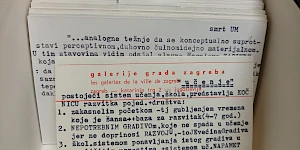
MSU (Zagreb), Van Abbemuseum (Eindhoven), MG+MSUM (Ljubljana), ZRC SAZU (Ljubljana) and L'Internationale invite applications for the new School of Common Knowledge (SCK) to be held in Zagreb and Ljubljana 24–29 May 2024. The School of Common Knowledge draws on the network, knowledge and experience of the L’Internationale museum confederation. Its ambition is to be both nomadic and situated, looking at specific cultural and geopolitical situations while exploring their relations and interdependencies with the rest of the world. The SCK is built on the basis laid by the Glossary of Common Knowledge project initiated by Zdenka Badovinac and Moderna galerija (Ljubljana) and continues its co-learning methodology.
-
–MSU ZagrebModerna galerijaZRC SAZU
School of Common Knowledge 2024

School of Common Knowledge draws on the network, knowledge and experience of the L’Internationale museum confederation. Built on the basis laid by the Glossary of Common Knowledge, a project initiated by Zdenka Badovinac and Moderna Galerija in Ljubljana, it continues its co-learning methodology. Its ambition is to be both nomadic and situated, looking at specific cultural and geopolitical situations while exploring their relations and interdependencies with the rest of the world.
-
–MACBA
The Open Kitchen. The fermented seed, colonialism and extractivism
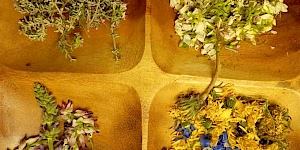
The MACBA Kitchen is a working group situated against the backdrop of ecosocial crisis. Participants in the group aim to highlight the importance of intuitively imagining an ecofeminist kitchen, and take a particular interest in the wisdom of individuals, projects and experiences that work with dislocated knowledge in relation to food sovereignty.
-
MACBA
The Kitchen: Workshop by Marina Monsonís
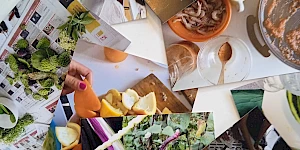
The Kitchen is a meeting place open to the participation of all, especially people and organizations that want to share their knowledge and experiences around the kitchen.
-
8 Sep 2023 –31 Dec MSN WarsawMulticultural Youth Center
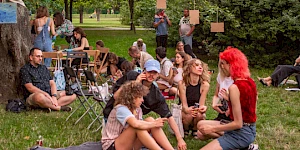
The Museum of Modern Art in Warsaw, together with the confederation of museums L'Internationale, is establishing a Multicultural Youth Center. This is a unique space for 16-24 year olds to explore and develop their creativity, make new friends and hang out in a friendly and supportive environment.
-
12 Apr 2023 –14 Apr MACBAWhere are the Oases?
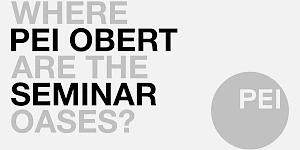
PEI OBERT seminar
with Kader Attia, Elvira Dyangani Ose, Max Jorge Hinderer Cruz, Emily Jacir, Achille Mbembe, Sarah Nuttall and Françoise VergèsAn oasis is the potential for life in an adverse environment.
-
2023 – 2024 MACBAMobile Garden. A Place to Meet
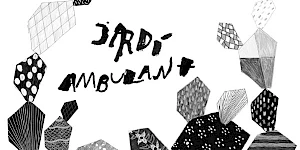
An open space, a social space. How could the Museum be more open to the needs of the neighbourhood?
-
2023 – 2024 Museo Reina SofiaSchool of Commoning Practices
This exchange programme gathers different schools organized by volunteers and migrant communities in Athens (Open School for Migrants) and Madrid (School of Rights, Escuela de Español and Situated mediation School) in order to share their knowledge, exchange strategies and reflect on the experience of working together with migrant communities.
-
1 Sep 2023 –30 Jun 2024 Museo Reina SofiaTeam of Teams
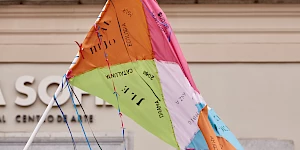
This project researches citizen participation as a fundamental pillar in the creation of community.
-
1 Apr 2024 –21 Dec 2025 Museo Reina SofiaSustainable Art Production
The Studies Center of Museo Reina Sofía will publish an open call for four residencies of artistic practice for projects that address the emergencies and challenges derived from the climate crisis such as food sovereignty, architecture and sustainability, communal practices, diasporas and exiles or ecological and political sustainability, among others.
-
9 Dec 2023 M HKASUPERHOST | Club Antena. Intimate listening and dancing experience
with Nele Möller, Farida Amadou, Le Réalism, Céline Gillain, Roberta Miss, Elena Colombi
CLUB ANTENA is an intimate listening and dancing session with a lecture, concert, performance, catering and DJ sets, exploring what it means to listen with our bodies.
-
1 Nov 2023 –31 May 2024 tranzit.roNon-Western Technologies for the Good Life
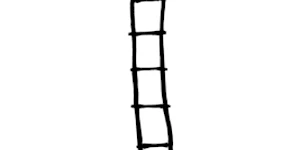
The experimental course ‘Non-Western Technologies for the Good Life’ (November 2023–May 2024) celebrates as its starting point the anniversary of 50 years since the publication of Tools for Conviviality, considering that Ivan Illich’s call is as relevant as ever.
-
24 Jan 2024 Institute of Radical ImaginationMSU ZagrebRed, Green, Black and White
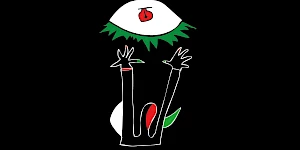
A performative inquiry by Institute of Radical Imagination and MSU Zagreb
-
2023 – 2024 Tongue and Throat Memories
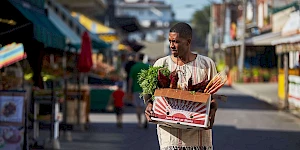
On hospitality and conviviality through food
Knowledges and convenings
Cooking Sessions -
24 Aug 2024 –30 Aug Moderna galerijaZRC SAZUSummer School: Our Many Easts
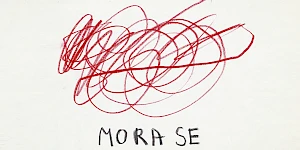
Our Many Easts summer school is organised by Moderna galerija in Ljubljana in partnership with ZRC SAZU (the Research Centre of the Slovenian Academy of Sciences and Arts) as part of the L’Internationale project Museum of the Commons.
-
15 Feb 2024 –15 Mar Moderna galerijaZRC SAZUOpen Call – Summer School: Our Many Easts

Our Many Easts summer school takes place in Ljubljana 24–30 August and the application deadline is 15 March. Courses will be held in English and cover topics such as the legacy of the Eastern European avant-gardes, archives as tools of emancipation, the new “non-aligned” networks, art in times of conflict and war, ecology and the environment.
-
23 Oct 2024 MACBAThe Open Kitchen. Map of edible tensions
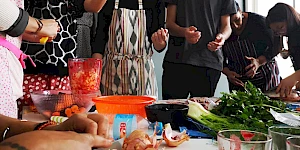
with Marina Monsonís, Paisanaje and Ruralitzem
The MACBA Kitchen is a working group situated against the backdrop of ecosocial crisis. Participants in the group aim to highlight the importance of intuitively imagining an ecofeminist kitchen, and take a particular interest in the wisdom of individuals, projects and experiences that work with dislocated knowledge in relation to food sovereignty. -
11 Dec 2024 MACBAThe Open Kitchen. Food networks in an emergency situation
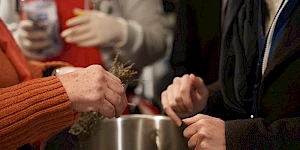
with Marina Monsonís, the Cabanyal cooking, Resistencia Migrante Disidente and Assemblea Catalana per la Transició Ecosocial
The MACBA Kitchen is a working group situated against the backdrop of ecosocial crisis. Participants in the group aim to highlight the importance of intuitively imagining an ecofeminist kitchen, and take a particular interest in the wisdom of individuals, projects and experiences that work with dislocated knowledge in relation to food sovereignty. -
28 Jan 2025 Moderna galerijaBook Launch: Collective Study in Times of Emergency, Ljubljana
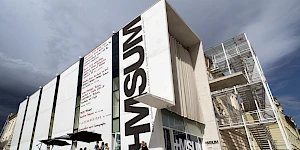
with Nick Aikens (L'Internationale Online / HDK-Valand), Bojana Piškur (MG+MSUM) and Martin Pogačar (ZRC SAZU)
-
10 Oct 2025 –18 Jan 2026 Kyiv Biennial 2025
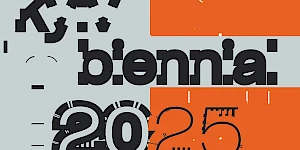
L’Internationale Confederation is proud to co-organise this years’ edition of the Kyiv Biennial.
-
10 Nov 2025 –16 Nov MACBAMuseo Reina SofiaSchool of Common Knowledge 2025
The second iteration of the School of Common Knowledge will bring together international participants, faculty from the confederation and situated organizations in Barcelona and Madrid.
-
14 Feb 2025 –13 Apr SALTPlant(ing) Entanglements

The series of sound installations Warm Earth Sounds for Plants and the People Who Love Them ends with Fulya Uçanok’s sound installation Plant(ing) Entanglements.
-
2025 Museo Reina SofiaSchool of Commoning Practices: Publication
Students, teachers and organizations of self-managed language and cultural mediation schools for migrants in Florence, Athens and Madrid share their experiences.
-
1 Jan 2025 –31 Dec Museo Reina SofiaSustainable Art Production. Research Residencies
The projects selected in the first call of the Sustainable Art Practice research residencies are A hores d'ara. Experiences and memory of the defense of the Huerta valenciana through its archive by the group of researchers Anaïs Florin, Natalia Castellano and Alba Herrero; and Fundamental Errors by the filmmaker and architect Mauricio Freyre.
-
28 May 2025 –27 Jun Museo Reina SofiaMACBAOpen Call – School of Common Knowledge 2025
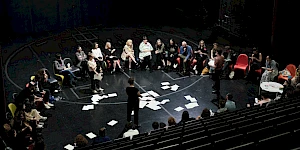
Museo Reina Sofía and MACBA Museu d’Art Contemporani de Barcelona (MACBA) invite applications for the 2025 iteration of the School of Common Knowledge, which will take place in Madrid and Barcelona 11-16 November 2025. The School of Common Knowledge (SCK) draws on the network, knowledge and experience of L’Internationale. Its ambition is to be both nomadic and situated, looking at specific cultural and geopolitical situations while exploring their relations and interdependencies with the rest of the world. This year, the SCK program focuses on the contested and dynamic notions of rooting and uprooting in the framework of present – colonial, migrant, situated, and ecological – complexities. Building on the legacy of the Glossary of Common Knowledge and the current European program Museum of the Commons, the SCK invites participants to reflect on the power of language to shape our understanding of art and society through a co-learning methodology.
-
7 Jul 2025 –11 Jul IMMANCADSummer School: Landscape (post) Conflict
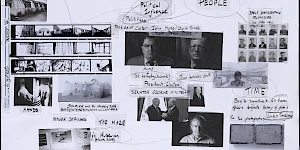
The Irish Museum of Modern Art and the National College of Art and Design, as part of L’internationale Museum of the Commons, is hosting a Summer School in Dublin between 7-11 July 2025. This week-long programme of lectures, discussions, workshops and excursions will focus on the theme of Landscape (post) Conflict and will feature a number of national and international artists, theorists and educators including Jill Jarvis, Amanda Dunsmore, Yazan Kahlili, Zdenka Badovinac, Marielle MacLeman, Léann Herlihy, Slinko, Clodagh Emoe, Odessa Warren and Clare Bell.
-
8 Oct 2025 –24 Jun 2026 Museo Reina SofiaStudy Group: Aesthetics of Peace and Desertion Tactics
In a present marked by rearmament, war, genocide, and the collapse of the social contract, this study group aims to equip itself with tools to, on one hand, map genealogies and aesthetics of peace – within and beyond the Spanish context – and, on the other, analyze strategies of pacification that have served to neutralize the critical power of peace struggles.
-
21 Oct 2025 –25 Oct MSU ZagrebOctober School: Moving Beyond Collapse: Reimagining Institutions
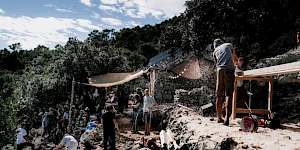
The October School at ISSA will offer space and time for a joint exploration and re-imagination of institutions combining both theoretical and practical work through actually building a school on Vis. It will take place on the island of Vis, off of the Croatian coast, organized under the L’Internationale project Museum of the Commons by the Museum of Contemporary Art in Zagreb and the Island School of Social Autonomy (ISSA). It will offer a rich program consisting of readings, lectures, collective work and workshops, with Adania Shibli, Kristin Ross, Robert Perišić, Saša Savanović, Srećko Horvat, Marko Pogačar, Zdenka Badovinac, Bojana Piškur, Theo Prodromidis, Ovidiu Ţichindeleanu, Progressive International, Naan-Aligned cooking, and others.
-
3 Oct 2025 –18 Jan 2026 MSN WarsawNear East, Far West. Kyiv Biennial 2025
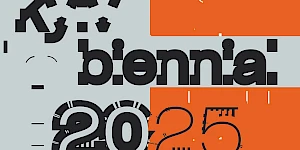
The main exhibition of the 6th Kyiv Biennial 2025, titled Near East, Far West, is organized by a consortium of curators from L’Internationale. It features seven new artists’ commissions, alongside works from the collections of member institutions of L’Internationale and a number of other loans.
-
9 Oct 2025 –11 Jan 2026 M HKAHomelands and Hinterlands. Kyiv Biennial 2025
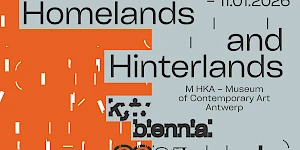
Following the trans-national format of the 2023 edition, the Kyiv Biennial 2025 will again take place in multiple locations across Europe. Museum of Contemporary Art Antwerp (M HKA) presents a stand-alone exhibition that acts also as an extension of the main biennial exhibition held at the newly-opened Museum of Modern Art in Warsaw (MSN).
In reckoning with the injustices and atrocities committed by the imperialisms of today, Kyiv Biennial 2025 reflects with historical consciousness on failed solidarities and internationalisms. It does this across an axis that the curators describe as Middle-East-Europe, a term encompassing Central Eastern Europe, the former-Soviet East and the Middle East.
-
16 Oct 2025 MACBAPEI Obert: Bodies of Evidence. A lecture by Ido Nahari and Adam Broomberg
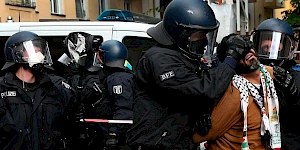
In the second day of Open PEI, writer and researcher Ido Nahari and artist, activist and educator Adam Broomberg bring us Bodies of Evidence, a lecture that analyses the circulation and functioning of violent images of past and present genocides. The debate revolves around the new fundamentalist grammar created for this documentation.
-
23 Oct 2025 –7 Feb 2026 Everything for Everybody. Kyiv Biennial 2025
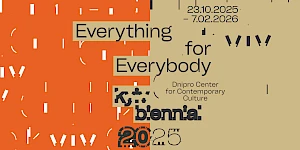
As one of five exhibitions comprising the 6th Kyiv Biennial 2025, ‘Everything for Everybody’ takes place in the Ukraine, at the Dnipro Center for Contemporary Culture.
-
24 Oct 2025 –28 Dec In a Grandiose Sundance, in a Cosmic Clatter of Torture. Kyiv Biennial 2025
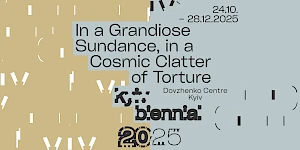
As one of five exhibitions comprising the 6th Kyiv Biennial 2025, ‘In a Grandiose Sundance, in a Cosmic Clatter of Torture’ takes place at the Dovzhenko Centre in Kyiv.
-
15 Nov 2025 MACBASchool of Common Knowledge: Fred Moten
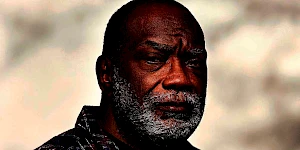
Fred Moten gives the lecture Some Prœposicions (On, To, For, Against, Towards, Around, Above, Below, Before, Beyond): the Work of Art. As part of the Project a Black Planet exhibition, MACBA presents this lecture on artworks and art institutions in relation to the challenge of blackness in the present day.
-
1 Nov 2025 –28 Feb 2026 MACBAVisions of Panafrica. Film programme
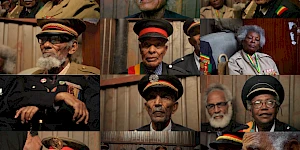
Visions of Panafrica is a film series that builds on the themes explored in the exhibition Project a Black Planet: The Art and Culture of Panafrica, bringing them to life through the medium of film. A cinema without a geographical centre that reaffirms the cultural and political relevance of Pan-Africanism.
-
6 Nov 2025 MACBAFarah Saleh. Balfour Reparations (2025–2045)
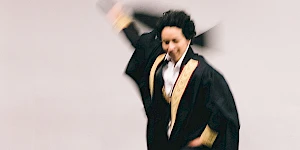
As part of the Project a Black Planet exhibition, MACBA is co-organising Balfour Reparations (2025–2045), a piece by Palestinian choreographer Farah Saleh included in Hacer Historia(s) VI (Making History(ies) VI), in collaboration with La Poderosa. This performance draws on archives, memories and future imaginaries in order to rethink the British colonial legacy in Palestine, raising questions about reparation, justice and historical responsibility.
-
5 Nov 2025 MACBAProject a Black Planet: The Art and Culture of Panafrica OPENING EVENT
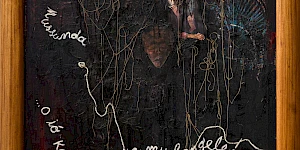
A conversation between Antawan I. Byrd, Adom Getachew, Matthew S. Witkovsky and Elvira Dyangani Ose. To mark the opening of Project a Black Planet: The Art and Culture of Panafrica, the curatorial team will delve into the exhibition’s main themes with the aim of exploring some of its most relevant aspects and sharing their research processes with the public.
-
3 Nov 2025 MACBAPalestine Cinema Days 2025: Al-makhdu’un (1972)
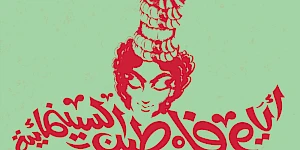
Since 2023, MACBA has been part of an international initiative in solidarity with the Palestine Cinema Days film festival, which cannot be held in Ramallah due to the ongoing genocide in Palestinian territory. During the first days of November, organizations from around the world have agreed to coordinate free screenings of a selection of films from the festival. MACBA will be screening the film Al-makhdu’un (The Dupes) from 1972.
-
31 Oct 2025 Museo Reina SofiaCinema Commons #1: On the Art of Occupying Spaces and Curating Film Programmes
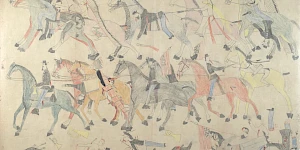
On the Art of Occupying Spaces and Curating Film Programmes is a Museo Reina Sofía film programme overseen by Miriam Martín and Ana Useros, and the first within the project The Cinema and Sound Commons. The activity includes a lecture and two films screened twice in two different sessions: John Ford’s Fort Apache (1948) and John Gianvito’s The Mad Songs of Fernanda Hussein (2001).
-
11 Nov 2025 –6 Jan 2026 Vertical Horizon. Kyiv Biennial 2025

As one of five exhibitions comprising the 6th Kyiv Biennial 2025, ‘Vertical Horizon’ takes place at the Lentos Kunstmuseum in Linz, at the initiative of tranzit.at.
-
20 Nov 2025 HDK-ValandMA Forum in collaboration with LIO: Cathryn Klasto

In this MA Forum we welcome artist and researcher Cathryn Klasto. This talk will share some working insight into Klasto’s ongoing book project ‘Space Trekking’. The book is a collection of visual essays which tries to reveal the relationship between artistic research, ethics and interstellar spatial phenomena storied within the Star Trek universe.
-
28 Nov 2025 –29 Nov International Day of Solidarity with the Palestinian People: Activities
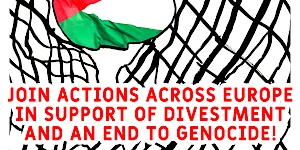
To mark International Day of Solidarity with the Palestinian People and in conjunction with our collective text, we, the cultural workers of L'Internationale have compiled a list of programmes, actions and marches taking place accross Europe. Below you will find programmes organized by partner institutions as well as activities initaited by unions and grass roots organisations which we will be joining.
This is a live document and will be updated regularly.
-
12 Dec 2025 MACBAPEI Obert: Until Liberation: A Collective Reading and Listening Session by Learning Palestine
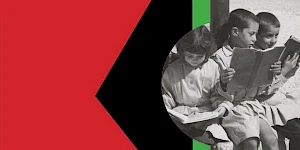
PEI Obert presents a collective session with Learning Palestine. At this historical juncture – amid the ongoing genocide in Gaza and the censorship and repression of all things Palestinian – Learning Palestine invites us to gather not only in refusal but also in affirmation.
Related contributions and publications
-
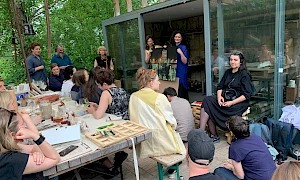
Dispatch: The Commonsverse and Situated Organisations – or why the era of big institutions will come to an end
Denise Pollini19 Jun 2024 SchoolsSituated OrganizationsMSU ZagrebModerna galerijaZRC SAZU -
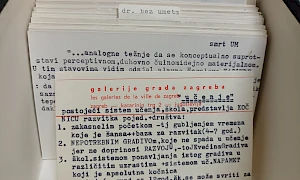
Reading list: School of Common Knowledge 2024
School of Common Knowledge21 May 2024 SchoolsSituated OrganizationsMSU ZagrebModerna galerijaZRC SAZU -
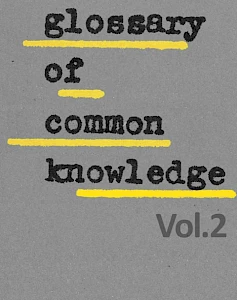
Glossary of Common Knowledge, Vol. 2
2022 Schools -
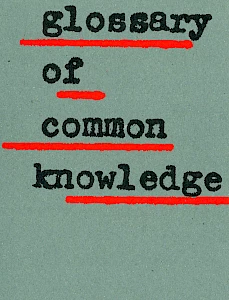
Glossary of Common Knowledge
2018 Schools -
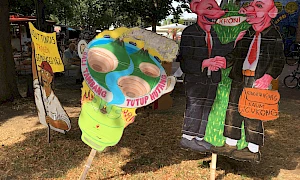
Prácticas lumbung para resistir y colaborar desde el arte
Constanza Yévenes Biénzobas30 Aug 2023 EN eslumbungSituated OrganizationsMuseo Reina Sofia -
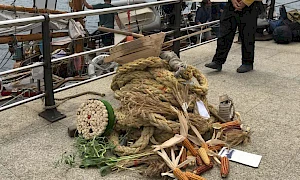
Algunos términos que guían a lumbung press: Definiendo “edición”
Erick Beltrán27 Apr 2023 EN eslumbungSituated OrganizationsMACBA -
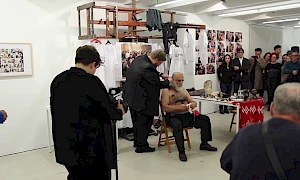
Performances from the opening of The Heritage of 1989. Case Study: The Second Yugoslav Documents Exhibition
Jusuf Hadžifejzović, Azra Akšamija, Ilija Šoškić27 Apr 2017 DialoguesModerna galerija -
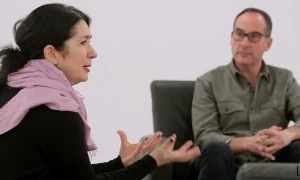
Epistemologies of the South
Zdenka Badovinac, Jesús Carrillo, Patrick Flores25 Jan 2017 DialoguesModerna galerija -
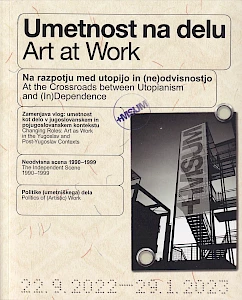
Art at Work – At the Crossroads between Utopianism and (In)Dependence
2022 Moderna galerija -
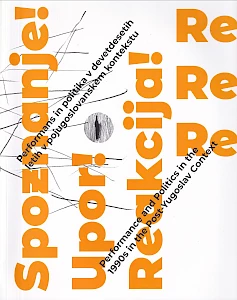
Realize! Resist! React! – Performance and Politics in the 1990s in the Post-Yugoslav Context
2021 Moderna galerija -
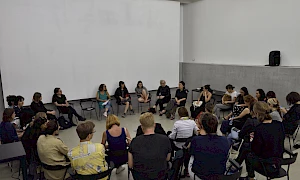
»We should never abandon the possibility of our active presence«
Zdenka Badovinac, Ieva Astahovska, Bermet Borubaeva, Darja Filippova, Nika Ham, Dorota Michalska, Radek Przedpełski, Ekaterina Vorontsova21 May 2021 Moderna galerija -
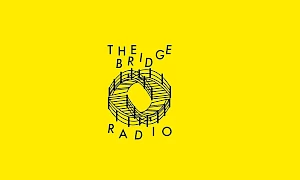
Our Movements Are Loud
Bridge Radio10 May 2021 Moderna galerijaHDK-Valand -
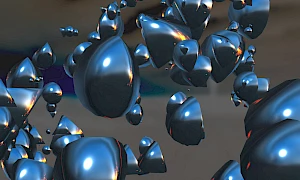
Tuning, Bias, and the Wild Beyond
Nora Akawi, Khyam Allami10 May 2021 Moderna galerijaHDK-Valand -
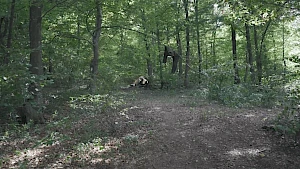
Newsreel 65 – “We have too much things in heart…”
2021 Moderna galerija -
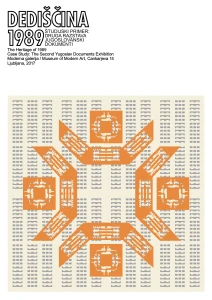
The Heritage of 1989. Case Study: The Second Yugoslav Documents Exhibition
2017 Moderna galerija -
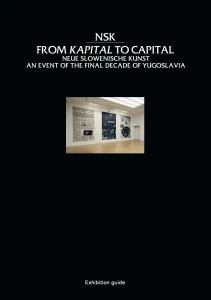
From Kapital to Capital. Neue Slowenische Kunst – an Event of the Final Decade of Yugoslavia
2015 Moderna galerija -
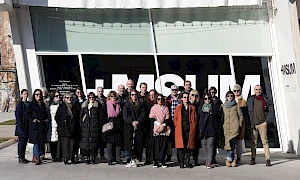
Museums under Political Control
Workers from Moderna galerija28 Feb 2022 Moderna galerija -
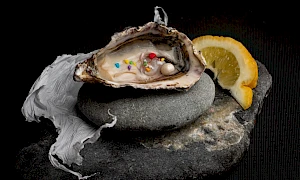
Discomfort at Dinner: The role of food work in challenging empire
Mary Fawzy29 Feb 2024 Land RelationsSituated Organizations -
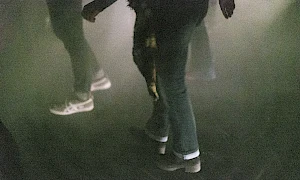
Mix tape: Let's funk up all genders!
Materia Hache / Others to the Front19 Mar 2024 EN esSonic and Cinema CommonsSituated OrganizationsMuseo Reina Sofia -
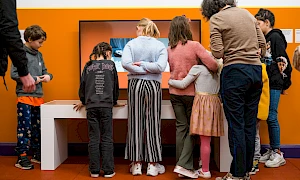
Towards Collective Learning, or, Decompartmentalizing Education
María Berríos, Fran MM Cabeza de Vaca, Yolande Zola Zoli van der Heide, Nick Aikens4 Apr 2024 SchoolsSituated Organizations -
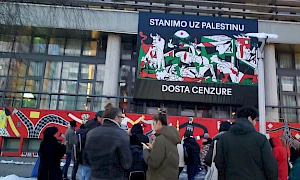
The Silence Has Been Unfolding For Too Long
The Free Palestine Initiative Croatia11 Apr 2024 InternationalismsPast in the PresentSituated OrganizationsInstitute of Radical ImaginationMSU Zagreb -
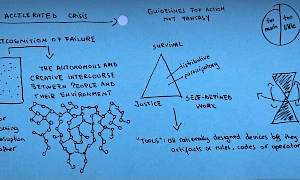
Dispatch: Harvesting Non-Western Epistemologies (ongoing)
Adelina Luft7 May 2024 Land RelationsSchoolsClimatetranzit.ro -
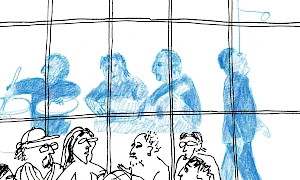
Dispatch: From the Eleventh Session of Non-Western Technologies for the Good Life
Ana Kun7 May 2024 Land RelationsSchoolstranzit.ro -

War, Peace and Image Politics: Part 1, Who Has a Right to These Images?
Jelena Vesić14 May 2024 InternationalismsPast in the PresentZRC SAZU -
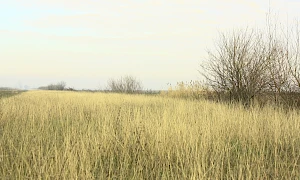
Dispatch: Practicing Conviviality
Ana Barbu28 May 2024 ClimateSchoolsLand Relationstranzit.ro -
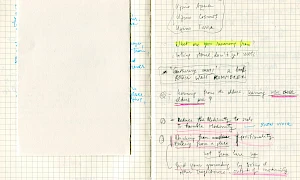
Dispatch: Notes on Separation and Conviviality
Raluca Popa28 May 2024 Land RelationsSchoolsSituated OrganizationsClimatetranzit.ro -
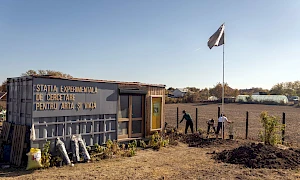
To Build an Ecological Art Institution: The Experimental Station for Research on Art and Life
Ovidiu Ţichindeleanu, Raluca Voinea31 May 2024 Land RelationsClimateSituated Organizationstranzit.ro -
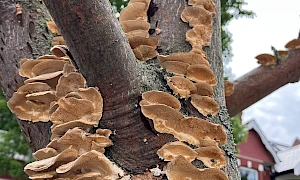
Dispatch: A Shared Dialogue
Irina Botea Bucan, Jon Dean4 Jun 2024 Land RelationsSchoolsClimatetranzit.ro -
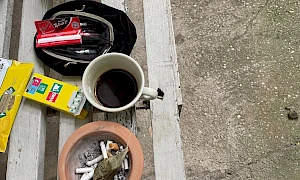
Dispatch: In between the lessons. Staying together in uncertain times, laughing in the face of trouble, and disobeying; the future belongs to us
Antonela Solenički19 Jun 2024 SchoolsSituated OrganizationsMSU ZagrebModerna galerijaZRC SAZU -
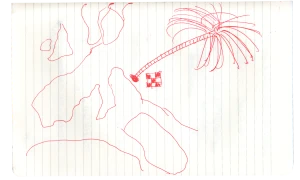
Dispatch: A Buriti Tree
Lucas Pretti10 Jul 2024 SchoolsSituated OrganizationsMSU ZagrebModerna galerijaZRC SAZU -
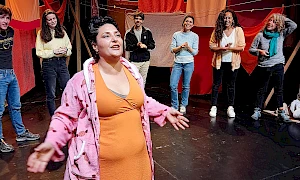
Poner el nombre a una causa en tierra extraña
Dagmary Olívar Graterol, Paola de la Vega Velastegui5 Jul 2024 EN esSchoolsSituated OrganizationsMuseo Reina Sofia -
Dispatch: To whom it may concern – the voice of the censor and re-calibrating words as an act of survival
Anonymous27 Jun 2024 SchoolsSituated OrganizationsMSU ZagrebModerna galerijaZRC SAZU -
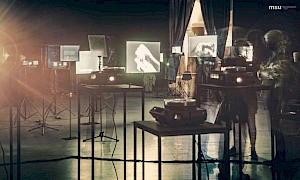
Rethinking Comradeship from a Feminist Position
Leonida Kovač18 Jul 2024 SchoolsInternationalismsSituated OrganizationsMSU ZagrebModerna galerijaZRC SAZU -
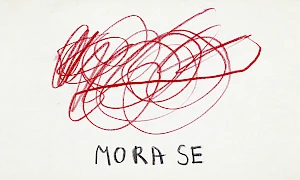
Reading list - Summer School: Our Many Easts
Summer School - Our Many Easts6 Sep 2024 SchoolsPast in the PresentModerna galerija -
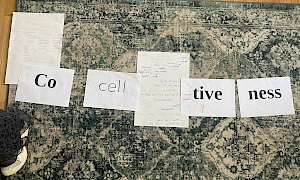
Dispatch: ‘I don't believe in revolution, but sometimes I get in the spirit.’
Megan Hoetger20 Sep 2024 SchoolsPast in the Present -
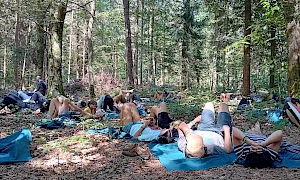
Dispatch: Notes on (de)growth from the fragments of Yugoslavia's former alliances
Ava Zevop24 Sep 2024 SchoolsPast in the Present -

Collective Study in Times of Emergency. A Roundtable
Nick Aikens, Sara Buraya Boned, Charles Esche, Martin Pogačar, Ovidiu Ţichindeleanu, Ezgi Yurteri15 Nov 2024 InternationalismsPast in the PresentSituated Organizations -
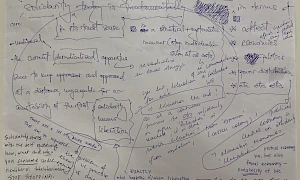
Dispatch: A Silent Conversation
Anela Dumonjić20 Dec 2024 SchoolsModerna galerija -
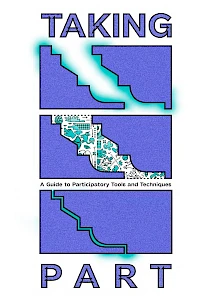
Taking Part. A Guide to Participatory Tools and Techniques
2024 EN esSchoolsSituated OrganizationsMuseo Reina Sofia -

Atención: participar en el Museo de los Comunes
Fran MM Cabeza de Vaca6 Mar 2025 EN esSchoolsSituated Organizations -
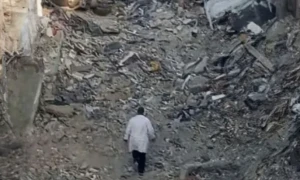
S come Silenzio
Maddalena Fragnito13 Jan 2025 EN itInternationalismsSituated Organizations -
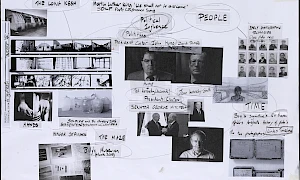
Reading List: Summer School, Landscape (post) Conflict
Summer School - Landscape (post) Conflict28 Jun 2025 SchoolsLand RelationsPast in the PresentIMMANCAD -
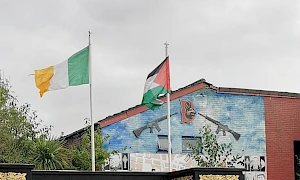
Dispatch: Reenacting the loop. Notes on conflict and historiography
Giulia Terralavoro16 Jul 2025 SchoolsLand RelationsIMMANCAD -
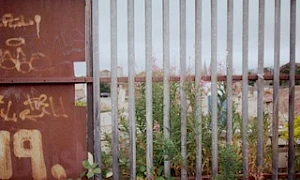
Dispatch: Haunting, cataloging and the phenomena of disintegration
Coco Goran17 Jul 2025 SchoolsLand RelationsIMMANCAD -
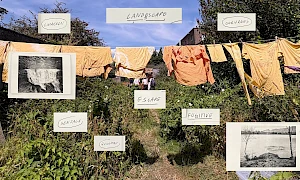
Dispatch: Landescape – bending words or what a new terminology on post-conflict could be
Amanda Carneiro17 Jul 2025 SchoolsLand RelationsIMMANCAD -
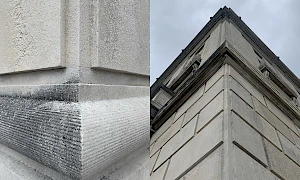
Dispatch: Landscape (Post) Conflict – Mediating the In-Between
Janine Davidson28 Aug 2025 SchoolsLand RelationsIMMANCAD -
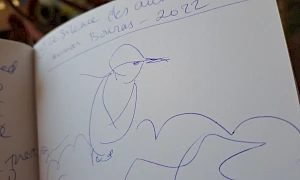
Dispatch: Excerpts from the six days and sixty one pages of the black sketchbook
Sabine El Chamaa27 Aug 2025 SchoolsLand RelationsIMMANCAD -
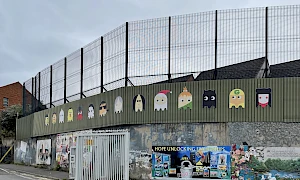
Dispatch: Withstanding. Notes on the material resonance of the archive and its practice
Giulio Gonella4 Sep 2025 SchoolsLand RelationsIMMANCAD -
Schools: Editorial
L'Internationale Online Editorial Board2025 Schools -
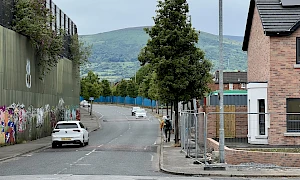
Dispatch: Between Pages and Borders – (post) Reflection on Summer School ‘Landscape (post) Conflict’
Daria Riabova25 Sep 2025 SchoolsLand RelationsIMMANCAD -
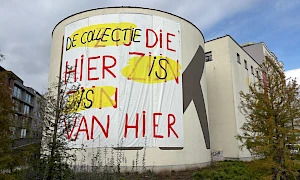
Statement in support of M HKA
L’Internationale Confederation9 Oct 2025 Statements and editorialsSituated Organizations -
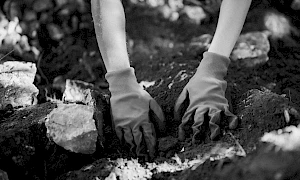
Reading list: October School. Reimagining Institutions
October School12 Nov 2025 SchoolsSituated OrganizationsClimateMSU Zagreb -
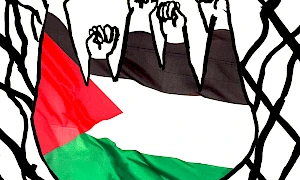
Cultural Workers of L’Internationale mark International Day of Solidarity with the Palestinian People
Cultural Workers of L’Internationale26 Nov 2025 EN es pl roInternationalismsSituated OrganizationsPast in the PresentStatements and editorials -
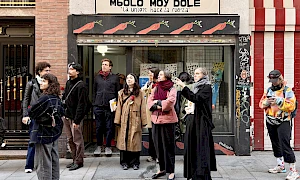
Dispatch: Notes On Generosity
Amanda Macedo Macedo19 Dec 2025 SchoolsMuseo Reina SofiaMACBA -
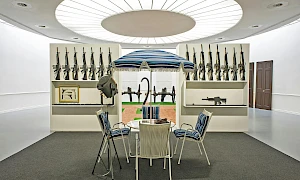
The Fifth Estate: On Museums, Public Imagination and the Vanishing Space for Collectivity
Philippe Pirotte, Els Silvrants-Barclay18 Dec 2025 EN nlSituated OrganizationsM HKA